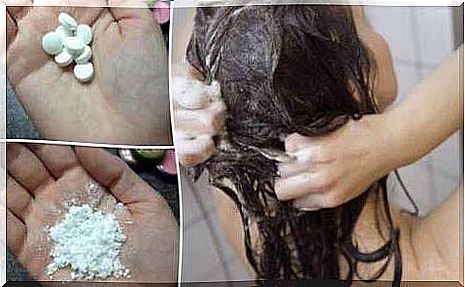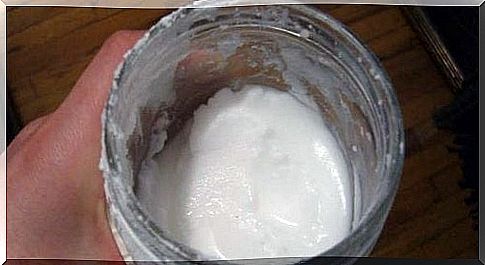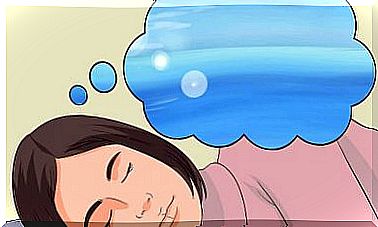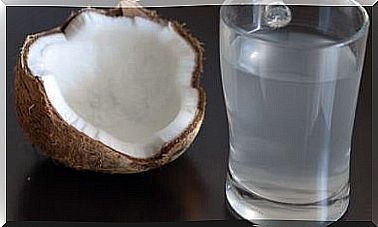Aspirin For The Hair
Aspirin is not only useful as a blood thinning pain reliever, it can also be useful in hair care

Aspirin is usually a popular drug for headache or flu. But it also has many other benefits. Find out today whether and how aspirin makes sense for your hair .
Aspirin is the brand name of a well-known and popular pain reliever based on the active ingredient acetylsalicylic acid.
Other trade names of the same active ingredient include: Acesal, Alka-Seltzer, Godamed, Herz-ASS, Miniasal, Togal-ASS, ASS-ratiopharm, EudorlinAlcacyl, Asa-Tabs, Aspégic, Aspro, Kardégic, Tiatral Acekapton, Aspro Classic, Thrombo -ASS, Togal Mono and more!
Depending on the amount of acetylsalicylic acid contained in each tablet, there are often numbers after the name, such as “ASS100”.
The active ingredient acetylsalicylic acid has a blood-thinning effect, which is why it is not only used as a classic headache tablet, but is also prescribed to prevent thrombosis.
In addition, with its namesake, aspirin also has anti-inflammatory, antipyretic and – of course – pain-relieving effects.

Aspirin from willow bark
The Teutons and Celts already cooked an extract from willow bark that relieved pain and reduced fever. Later research found that willow bark actually contained ingredients that were pharmacologically effective.
The first drugs arose from the isolated active ingredient, which, however, was not really successful because of its side effects on the stomach, among other things. Medical research continued and in 1921 the Bayer company applied for a patent for aspirin.
Today the active ingredient is produced synthetically and has nothing to do with the romantic idea of boiling off willow bark. Aspirin is one of the most common and well-known drugs in the world.
Nature without risk?
Everything that comes from nature (here: willow bark) is not always harmless to humans. Aspirin also has serious side effects and should only be used in emergencies and not as a “panacea”. The most common risks and side effects are:
- Stomach discomfort (nausea, heartburn, vomiting)
- Stomach ulcers
- Bleeding in the stomach
- Increased bleeding tendency
- Nosebleeds
Overdosing can lead to respiratory paralysis and loss of consciousness as well as severe kidney damage. So it makes sense to avoid this drug – or use it topically!

Alternative application examples
Some cosmetic products that are commercially available for oily and blemished skin also contain salicylic acid. This has an antibacterial and anti-inflammatory effect and dries out oily skin.
If you have sensitive or dry facial skin, such products are completely unsuitable for you.
Some recommend aspirin as a peeling, which is supposed to combine the anti-inflammatory effects with the cleansing effects of a peeling.
When doing such experiments, however, always keep in mind that aspirin was tested and developed for internal use as a medicinal product and not as a cosmetic product!
Aspirin for hair?
One hears again and again that aspirin tablets are used for hair care. Some claim they work against dandruff, itchy scalp, or other ailments. Is Aspirin Really Useful For Hair ?
Aspirin cannot be helpful here, on the contrary, it can make the symptoms worse. Anyone who suffers from so-called “dry dandruff” should never use products that additionally dry out the scalp.
However, the active ingredient acetylsalicylic acid dries out the skin and is therefore counterproductive.
It is just as pointless to use acetylsalicylic acid against fatty dandruff, as these are usually caused by fungi. Aspirin has anti-inflammatory effects, but not antifungal (i.e. against fungi) or antibacterial (against bacteria).
The use of crushed tablets against dandruff of any kind is therefore pointless or even counterproductive. However, there is one single application that you should try aspirin for hair:

Acetylsalicylic acid against green hair
Anyone who has bleached or naturally light blonde hair often struggles with a green cast in their hair when they regularly visit the swimming pool in summer.
The chlorinated water can be a reason for this. In some older houses, there are seldom water pipes made of copper pipes, which can also lead to a green cast in the hair.
If you notice this kind of discoloration on your hair, aspirin could be a success.
Place the number of tablets corresponding to your hair length on a saucer and add a few drops of hot water. Acetylsalicylic acid is poorly soluble in cold water.
Now crush the tablets with the back of a spoon or fork and make a pulp out of them. Brush this on the affected hair areas and leave it on for about half an hour.
Note that this is an application with acid and you should definitely treat your hair with a hair treatment or hair oil after the application!
As a preventive measure, you can try a hair conditioner that you make yourself by completely dissolving a few tablets in hot water.
This can take a while, be careful not to pour white crumbs on your hair! The resulting hair conditioner from dissolved tablets has a similar effect to a conditioner made from lemon juice or vinegar, in that the acid brings the dandruff to the skin and thereby gives the hair shine.









